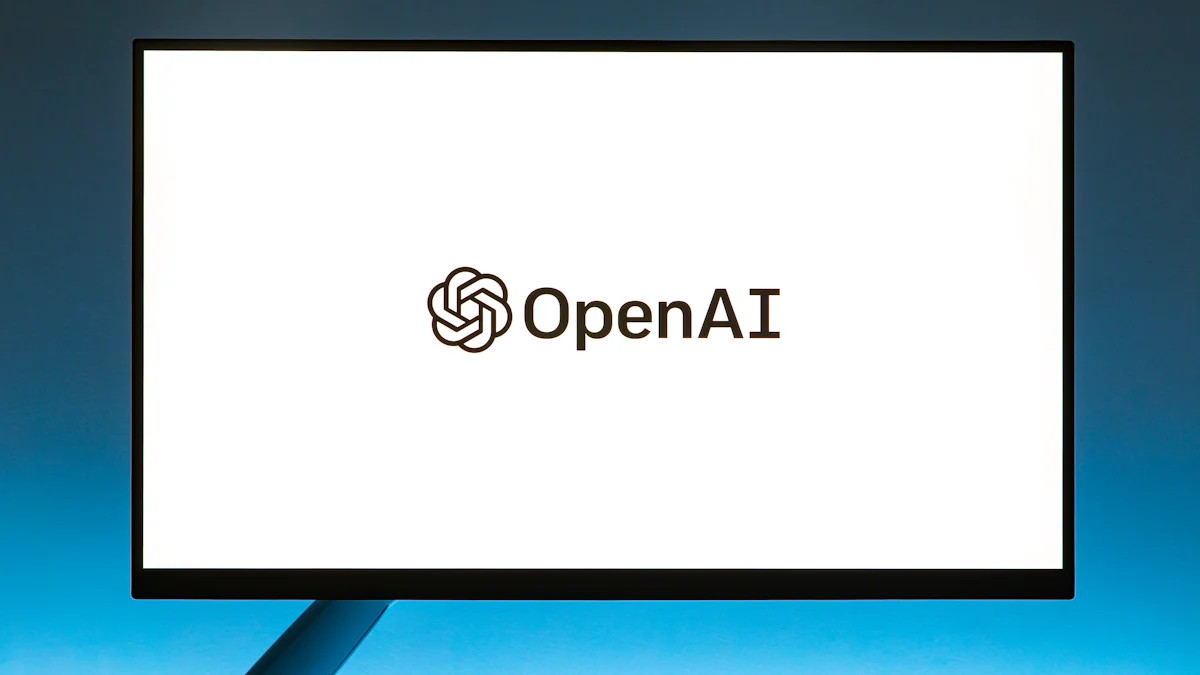Analyzing the Role of Foundation Models in Modern AI

Foundation models represent a groundbreaking advancement in AI technology. These large-scale AI models, trained on massive datasets, serve as the backbone for a multitude of AI applications. Their ability to capture general language patterns and knowledge from diverse sources accelerates the development of new AI applications. Foundation models offer innovative capabilities across multiple domains, including natural language understanding and image processing. This versatility and adaptability have transformed AI development, enabling systems to become more productive and efficient. As a result, foundation models are shaping the future of AI products and industries, becoming the backbone of the AI industry.
The Significance of Foundation Models in AI
Foundation models have revolutionized the landscape of artificial intelligence by offering a robust framework for developing advanced AI solutions. Their significance lies in several key areas that enhance the efficiency and effectiveness of AI applications.
Accelerated Development
Foundation models significantly speed up the development process of AI applications. Unlike traditional AI models, which require building from the ground up for each new task, foundation models allow developers to fine-tune existing models for specialized tasks. This capability reduces the time and computational resources needed for training, enabling quicker deployment of AI solutions. For instance, developers can leverage pre-trained foundation models to create applications for natural language processing or image recognition without starting from scratch. This approach not only accelerates development but also fosters innovation by allowing more time for creative problem-solving.
Cost Efficiency
The cost efficiency of foundation models is another critical advantage. Training AI models from scratch demands substantial computational power and resources, which can be prohibitively expensive. Foundation models mitigate these costs by providing a pre-trained base that can be adapted for various applications. This adaptability reduces the need for extensive computational resources, making AI development more accessible to organizations with limited budgets. By lowering the financial barriers to entry, foundation models democratize AI technology, enabling a broader range of industries to harness its potential.
Versatility
The versatility of foundation models sets them apart from traditional AI models. These models can handle a wide array of tasks across different domains, thanks to their expansive parameter scale and multi-modal adaptability. Whether it's text translation, image processing, or speech recognition, foundation models offer a flexible solution that can be tailored to meet specific needs. This versatility not only enhances the functionality of AI applications but also supports the development of innovative solutions that address complex challenges. As a result, foundation models play a pivotal role in driving the widespread adoption of AI technologies across various sectors.
How Foundation Models Function
Foundation models operate through intricate processes that enable them to perform a wide range of tasks. Understanding these processes provides insight into their capabilities and the considerations necessary for their responsible use.
Training and Learning Patterns
Foundation models undergo extensive training on vast datasets, which allows them to learn and generalize from diverse data sources. This training involves processing large volumes of information to identify patterns and relationships within the data. The models utilize advanced architectures, such as transformers, to enhance their learning efficiency. By continuously updating with new data, foundation models maintain their relevance and effectiveness. This ongoing learning process ensures that they adapt to changes and trends in the data landscape, making them robust tools for various applications.
Ethical Considerations
The deployment of foundation models raises significant ethical concerns. These models can inherit biases present in their training data, leading to unfair or discriminatory outcomes. Addressing these biases requires careful consideration and robust methods for detection and mitigation. Additionally, the use of AI models prompts ethical questions about job displacement, accountability, and societal impact. Businesses must ensure that their models align with their values and are developed responsibly. This may involve additional oversight, testing, and validation to prevent unintended consequences. Policymakers play a crucial role in supporting the advancement of evaluation techniques to measure the efficacy, bias, and accuracy of AI systems.
Examples and Applications of Foundation Models

Foundation models have become integral to the advancement of artificial intelligence, offering a versatile and powerful toolset that can be leveraged across various industrial applications. Their ability to perform complex tasks with remarkable efficiency has made them indispensable in numerous fields.
Notable Foundation Models
Several foundation models have gained prominence due to their exceptional capabilities. These models excel in tasks related to natural language understanding and generation, content creation and personalization, image and video processing, data augmentation and synthesis, and scenario simulation and planning. For instance, models like GPT-3 and BERT have set new standards in natural language processing by enabling machines to understand and generate human-like text. Similarly, models such as DALL-E and CLIP have revolutionized image processing by allowing AI systems to create and interpret visual content with unprecedented accuracy.
"Foundation models, as the backbone of Generative AI, offer a versatile and powerful toolset that can be leveraged across various industrial applications."
These models demonstrate the potential of AI to transform industries by providing solutions that were previously unimaginable. Their ability to learn from vast datasets and adapt to new tasks makes them a cornerstone of modern AI development.
Industry Applications
Foundation models have found applications in a wide range of industries, enhancing operational capabilities and driving innovation. In the healthcare sector, these models assist in diagnosing diseases by analyzing medical images and patient data. They also support drug discovery by simulating molecular interactions and predicting outcomes. In the finance industry, foundation models improve fraud detection and risk assessment by analyzing transaction patterns and identifying anomalies.
In the realm of entertainment, foundation models contribute to content creation and personalization. Streaming services use these models to recommend shows and movies based on user preferences, while gaming companies employ them to generate realistic environments and characters. The versatility of foundation models extends to the automotive industry, where they aid in developing autonomous vehicles by processing sensor data and making real-time decisions.
The widespread adoption of foundation models underscores their significance in shaping the future of AI. By offering a robust framework for developing advanced AI solutions, these models empower organizations to tackle complex challenges and unlock new opportunities.
Challenges and Risks of Foundation Models

Foundation models, while transformative, present several challenges and risks that require careful consideration. These issues can impact the effectiveness and fairness of AI applications.
Data Bias
Foundation models often inherit biases from their training data. These biases can lead to discriminatory or unfair outcomes. For instance, historical, representational, and societal biases embedded in the data can adversely affect model behavior. When models trained on biased data generate responses, they might reflect these biases, resulting in outputs that could be discriminatory or unfair. This is particularly concerning in sensitive areas like healthcare, where biased models might underdiagnose marginalized groups, posing challenges to equitable healthcare access. Developers and users must remain vigilant about these biases and implement strategies to mitigate them. Ensuring algorithmic fairness is crucial to prevent the perpetuation and amplification of biases through AI applications.
Environmental Impact
The development and deployment of foundation models demand substantial computational resources. Training these models requires significant energy consumption, contributing to their environmental footprint. The resource-intensive nature of foundation models raises concerns about sustainability. As AI continues to evolve, the industry must address the environmental impact of these models. Efforts to optimize energy efficiency and explore alternative, less resource-intensive methods of training are essential. By prioritizing sustainability, the AI community can work towards minimizing the ecological consequences of foundation models, ensuring that technological advancements align with environmental responsibility.
Foundation models have revolutionized AI, offering transformative capabilities across industries. Their ability to accelerate development and enhance cost efficiency drives innovation, making them indispensable in modern AI applications. However, addressing challenges such as data bias, computational accessibility, and security concerns remains crucial. By implementing robust measures to mitigate these issues, the AI community can ensure responsible development. The Zhongkai High-tech Zone National Foreign Trade Transformation and Upgrading Base (Electronic Information) Cloud Platform plays a pivotal role in supporting enterprises within the zone, fostering growth and innovation in AI technologies.
See Also
Leading Innovators in the Global Smart Control Sector
Huizhou Zhongkai's Innovative Approach to Sustainable Growth
Huizhou Zhongkai: A Fresh Blueprint for Expansion
Zhongkai High tech Zone National foreign trade transformation and Upgradi Base(Electronic Information)Cloud Platform.
Address: Zhongkai High-tech Zone,Huizhou City ,Guangdong,China
E-mail: huizhoueii@163.com 13510001271@163.com
Tel: +86-0752-3279220 Mobile: +86-13510001271


